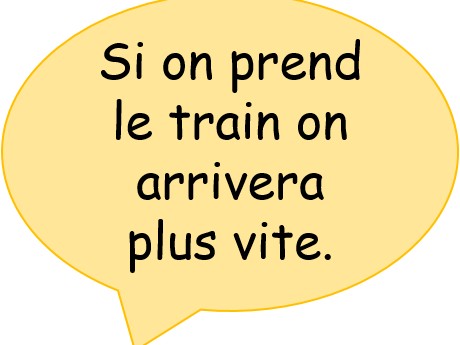15Uploads
3k+Views
2k+Downloads
World languages

French GCSE Healthy eating lessons based on 'The Biggest Loser'
Based on AQA French GCSE vocabulary for the Healthy eating/lifestyle topic. Powerpoint introducing the contestants, reading comprehension worksheet and board game - which can be played in pairs or small groups - with true/false and translation questions. The second power point reintroduces the characters with the changes that they have made, so goes with the board game. The second power point gives guidance for a writing activity which can be used as an assessment.

Complete lesson French GCSE si/quand phrases with future tense
This lesson introduces si and quand phrases with the aim of getting pupils used to coping with more than one tense. The lesson can be used as part of a series as it introduces a diamond robbery story to teach a range of tenses in context, but it will work as a standalone too. I have used this with high ability year 9 and am using it to revise tenses for year 10 and 11. The starter is a gap fill to recap comparisons, then pupils translate the si and quand phrases. They then have to put the correct future tense verb in to the phrases. Those that work quickly will translate the new phrases. The plenary is an odd one out - recapping the grammar focus of the lesson. Pupils have to explain why it is the odd one out.

Comparatives and superlatives - French speaking Africa
Designed for KS4, or year 9 upwards French GCSE. This lesson introduces or practices comparatives and superlatives in context by comparing Benin, Cameroon, Senegal and Mali. With cultural references, including famous people. Starts with a gap fill and translation task. Slides 8 and 9 are the worksheet which is also available as a pdf, ready to print out. This is differentiated by task, as the questions are progressively harder so that pupils can work at their own pace. For the plenary, pupils create their own sentences.

Diamond robber lesson focusing on conditional tense
This lesson focuses on the conditional tense but includes the present, past (passé composé and imparfait) and future tenses too. Suitable for able year 9 upwards/ GCSE this is part of a series using the story of a diamond robbery to practise using different tenses together. The lesson can be used as part of the series (a whole term's worth!) or on its own. There is a starter, followed by an email from the very demanding girlfriend of the diamond robber asking for all the things she would like in her hotel. Pupils start by picking out simple details from the email, followed by a reading comprehension which is on the powerpoint or as a printable pdf with the email. This increases in difficulty so that pupils can work at their own pace. There is an extension task, spotting other tenses in the email and an odd one out plenary.

Complete lesson practising present and future tenses for French GCSE
This fantastic resource includes listening, reading aloud, reading and writing in the present and future tenses. The starter recaps a 'si' phrase, asking pupils to translate and then recreate the sentence in French with a 'missing vowel' text. The lesson uses the context of a diamond robbery and can be either used after my 'quand si present futur' lesson or as a standalone. An email from the accomplice is used as a listening exercise, read aloud by you or a pupil as others put the pictures in order as they hear them in the email. This is differentiated as there are pictures to print out with and without labels. The email is then used as a reading comprehension with true/false questions and translations from French to English and English to French. The increasing difficulty means that pupils can work at their own pace. There is also an extension task to tweet a message in past and future tenses. The plenary is an odd one out with the focus on grammar covered in the lesson. There is a lot of material here, so could be done over two lessons.

KS4 French GCSE lesson on the imperative
This lesson can be used on it's own or after my lesson on comparing French African countries. The objective of the lesson is to write a tourist advert using the imperative. The starter uses a gap fill to recap comparisons. Pupils then match as many verbs in the imperative to appropriate phrases. There is an information page on Sénégal as a scaffold to write their own advert. HAPs can add comparisons to their imperative phrases.

Manger et boire - intro to food and opinions
This lesson introduces food and simple opinions. I have used it with years 7 and 8 (11-12 year old beginners). There are pictures to drill food items, followed by a Kim's game. Pupils then read tweets to work out what their 'friends' like to eat. The second power point are some menus I created by modifying a French restaurant review website. I put these round the room and pupils go up to each menu (running dictation style) to see which restaurant would suit which person. They then write a tweet to their friend (model provided) to say which restaurant they recommend. There is a tic-tac-toe as a plenary which you can differentiate (say the food item/say if you like it). I print off the opinions and make pupils pick one (like from a pack of cards) to include.

Present, past, future conditional tenses trip advisor lesson
This lesson concludes a series of lessons about a diamond robbery but can be used as a standalone lesson. The starter is a translation that recaps the story so far. Pretend Trip advisor reviews are used with an activity to work out what hotel has which facilities. A scaffolded speaking activity gets the pupils asking each other what activities they would like to do. There is also a tic-tac-toe activity with pictures of the activities - I usually divide the class in two for them to play against each other to say what they would like to do using the pictures only. You could differentiate by giving the lower ability the phrases. The pupils then read an email which has a reading comprehension worksheet and then work out where the accomplice is staying and where he is going to go using the trip advisor reviews and the passé composé and future tenses. There is a lot of material in this lesson. There is more than enough for high ability pupils to get through in one lesson but you may want to make it two lessons.
Bundle

Travel from Paris to Senegal ppts and worksheet, using multiple tenses
Complete series of lessons working on using multiple tenses and higher level structures such as quand and si phrases, comparatives and superlatives. I have used this with high ability year 9 as well as year 10 and 11. Covers holiday, travel, transport and free-time topics. If used together, I use them in the order listed. As well as powerpoint lessons with starters/plenaries there are activities, worksheets and reading comprehension/translation activities. Should take you through at least half a terms lessons. It has taken me hours of prep, so a real bargain!

Social media and mobile technology starter and board game
A match up starter to print out for your pupils. The board game is based on vocabulary from the AQA GCSE French Social media and Mobile Technology units from Theme 1. The game can be played in pairs or small groups with counters and a dice. The squares have true or false questions or translations based on the texts in the middle of the board. I like to leave pupils to work out how to play it or make up their own rules, but you could differentiate by giving more guidance to lower ability pupils. I have included the word document so that you can modify the game for your own purpose.

French descriptions revision KS2 KS3
Revision lessons on decribing yourself and family ideal for back to school first lessons for key stage 2 or key stage 3. Lots of recall slides which can be used as is or easily adapted, learning journey shown on multiple slides.
Match up, true or false, spot the mistake, multiple choice activities. Challenge tasks. Reading comprehension and scaffolded writing task.
Slide to print out to provide extra support for students with lower reading/writing ages.

Trapdoor speaking activities on social media and mobile technology
Two trapdoor activities based on the AQA French GCSE role play and photo card speaking assessments. I use the powerpoint to get pupils to read aloud/check understanding. The pupils then play the trapdoor game (pupils have to guess which option their partner has chosen, repeating all the answers until they have guessed each one). Pupils then learn their chosen answers and peer assess. The activity is differentiated by the possible answers - either short and cognate based or, for the photo card, they can extend their answers with more detail/reasons.












